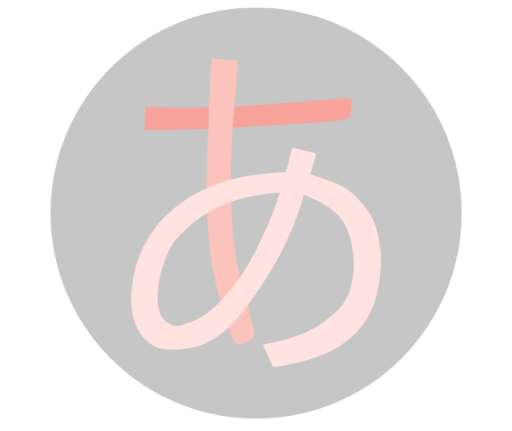
Free Japanese Quiz
for Beginners
passive・causative
37-1
N1 は N2 に Passive Form
N1 は N2 に N3 を Passive Form
passive form when feeling victimized
passive form not feeling annoyed
Please express using with a passive form.
Please touch “Passive” to see the answer.
1. Someone behind me pushed me.
うしろの ひとが わたしを おしました。
2. Mr.Sato gave Mr.Suzuki many tasks.
さとうさんは すずきさんに たくさん しごとを たのみました。
3. The university selected Ms.Tanaka for outstanding student award.
だいがくは たなかさんを ゆうしゅうしょうに えらびました。
4. My younger brother broken my glasses.
おとうとが わたしの めがねを こわしました。
5. The person next to me made my shirts dirty at a ramen restaurant.
ラーメンやで となりに いた ひとが わたしの シャツを よごしました。
6. My friend played guitar till late night, so I was not able to sleep.
ともだちが よる おそくまで ギターを ひいて、( わたしは ) ねむれませんでした。
7. A man stand in front of me, so I could not see anything.
おとこのひとが まえに たって、なにも みえませんでした。
8. People sing this song all over the world.

Grammar
Noun 1 は Noun 2 に Passive Form
”Noun 1” is affected by the action of ”Noun 2”, and it’s an expression from the side of ”Noun 1”.
A subject ( = “Noun 1” ) is a “human”. “Noun 2” can be something that “moves” ( animal, car etc. ) other than a “human”.
1.
active
A pushed B.
| A は | B を | おしました。 |
passive
B was pushed by A.
| B は | A に | おされました。 |
active
せんせいは わたしを よびました。
passive
active
おかあさんは こどもを ほめました。
passive
2.
active
A asked B for C.
| A は | B に | C を | たのみました。 |
passive
B was asked by A for C.
| B は | A に | C を | たのまれました。 |
active
たろうは はなこに かいものを たのみました。
passive
active
けいさつは わたしに なまえを ききました。
passive
PatternPassive Form
Noun 1 は Noun 2 に Noun 3 を Passive Form
“Noun 1’s part of body or personal belonging ( = N3 ) is affected by N2.
It annoys N1 and N1 feels “I am a victim”.
active
A pushed B’s back.
| A は | B の | せなか を | おしました。 |
passive
B was pushed B’s back by A.
| B は | A に | せなか を | おされました。 |
active
おとこの ひとが わたしの さいふを とりました。
passive
active
ともだちが わたしの けいたいでんわを みました。
passive
passive form when feeling victimized
You are not directly affected by someone’s action or some event, but it bothers and annoys you.
Both transitive verb and intransitive verb can be used.
“Passive of intransitive verb” is particular to Japanese language, so it is unfamiliar to foreigners.
Please learn with example sentences.
active
The thief run away.
| どろぼう は | にげました。 |
passive
It annoyed me.
| わたし は | どろぼう に | にげられました。 |
active
( My roommates made a lot of noise. )
passive
( My roommates made a lot of noise, so I could not study. )
active
( It rained on the day of school trip. )
passive
( It rained on the day of school trip, so we could not go to the sea. )
active
( The lady put the luggage on the seat on the train. )
passive
( The lady put the luggage on the seat on the train, so I could not sit. )
The subject is “I / we” or “someone you feel emotionally close to”.
active
( The baby cried. )
passive
( The baby cried, and the mother doesn’t know what to do. )
note
This expression is used when you feel annoyed.
( My friend played guitar at night, so I was not able to sleep. )
If you feel happy, use ”Verbて-くれます” or “Verbて-もらいます“.
( My friend played guitar for me on my birthday. )
( My friend is very good at playing the guitar, so I asked him and he kindly played for my party. )
passive form not feeling annoyed
You use the Passive form to say the facts objectively. This expression doesn’t have feeling of disgust.
It is told a fact that will happen or has happened socially.
( People eat sushi all over the world. )
It is often not expressed “by the person or people who does”.
( The Olympic games are held once every four years. )
( This bridge is built last year. )
1. My mother scolded me.
ははは わたしを おこりました。
2. The lady stepped my foot on the train.
でんしゃで その おんなのひとは わたしの あしをふみました。
3. Someone put the bicycle in front of the door, so I was not able to go out.
4. Wine is made from grapes.
link
Japanese broadcasting station, NHK site helps you to learn Hiragana, Katakana, and Kanji.
